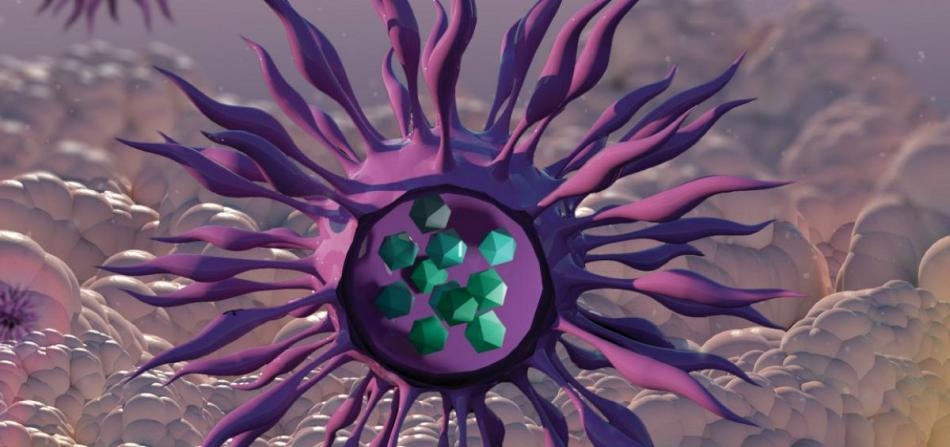Jun 27 2019
Oregon State University researchers have developed a better technique for using magnetic nanoclusters to destroy difficult-to-reach tumors.
 (Image credit: Oregon State University)
(Image credit: Oregon State University)
Magnetic nanoparticles – miniature pieces of matter as tiny as one-billionth of a meter – have exhibited anti-cancer potential for tumors easily accessible by syringe, allowing the particles to be injected straight into the malignant growth.
After being injected into the tumor, the nanoparticles are subjected to an alternating magnetic field (AMF). This field makes the nanoparticles go beyond 100 °F, causing the cancer cells to be killed.
But for certain cancer types such as prostate cancer, or the ovarian cancer used in the Oregon State research, direct injection is hard. In those scenarios, a “systemic” delivery technique – intravenous injection, or injection into the abdominal cavity – would be easier and more fruitful.
Scientists found it difficult to locate the appropriate kind of nanoparticles – the kind that, when administered systemically in clinically correct doses, collect in the tumor sufficiently to enable the AMF to heat cancer cells to death.
Olena Taratula and Oleh Taratula of the OSU College of Pharmacy addressed the problem by creating nanoclusters, multi-atom collections of nanoparticles, with improved heating efficiency. The nanoclusters are hexagon-shaped iron oxide nanoparticles doped with manganese and cobalt and loaded into biodegradable nanocarriers.
The research findings have been published in ACS Nano.
There had been many attempts to develop nanoparticles that could be administered systemically in safe doses and still allow for hot enough temperatures inside the tumor. Our new nanoplatform is a milestone for treating difficult-to-access tumors with magnetic hyperthermia. This is a proof of concept, and the nanoclusters could potentially be optimized for even greater heating efficiency.
Olena Taratula, Associate Professor of Pharmaceutical Sciences, OSU
The nanoclusters’ ability to reach therapeutically appropriate temperatures in tumors following a single, low-dose IV injection paves the way for manipulating the complete potential of magnetic hyperthermia in treating cancer, either by itself or with other therapies, she explained.
“It’s already been shown that magnetic hyperthermia at moderate temperatures increases the susceptibility of cancer cells to chemotherapy, radiation, and immunotherapy,” Taratula said.
The mouse models in this study received IV nanocluster injections after ovarian tumors had been grafted beneath their skin.
“To advance this technology, future studies need to use orthotopic animal models – models where deep-seated tumors are studied in the location they would actually occur in the body,” she said. “In addition, to minimize the heating of healthy tissue, current AMF systems need to be optimized, or new ones developed.”
This research was supported by the National Institutes of Health, OSU College of Pharmacy, and the Najran University of Saudi Arabia.
The following researchers also took part in this study: OSU electrical engineering professor Pallavi Dhagat, postdoctoral scholars Xiaoning Li and Canan Schumann of the College of Pharmacy, pharmacy graduate students Hassan Albarqi, Fahad Sabei, and Abraham Moses, engineering graduate student Mikkel Hansen, and pre-pharmacy undergrads Tetiana Korzun and Leon Wong.